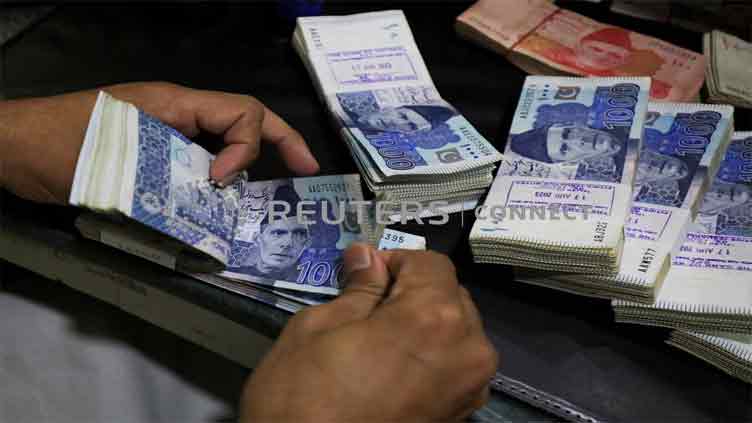Personal loans amid record-high interest rates

Business
Many in Pakistan finding it hard to repay; India goes for new rules which will curb loan growth
LAHORE/BENGALURU (Web Desk/Reuters) – With the interest rates reaching a record-high 22 per cent, many borrowers are now finding it difficult to repay their personal loans as they deal with a worsening cost-of-living crisis amid the record-high persistent inflation – one of the natural devastating outcomes of increasing the borrowing costs which has crippled Pakistan’s economy.
It must be a huge loss for the banks, lending the money. Not really because the house always wins. One mustn’t forget that the banks earned massive profits in 2021 and 2022 despite the fact that Pakistan’s economy remained in shambles.
Why the banks aren’t affected while consumers are caught in a tangled web? Well? Some of these are offering you – the clients – the options to defer payment of the principal amount for a couple of months or reschedule the debt which means in both cases that you will continue paying interest money to survive in the crisis.
At the same, the credit card holders are also experiencing rising costs due to the higher interest rates as no decision has been taken to protecting these or any other consumers/borrowers from the effects of monetary tightening.
PML-N supremo Nawaz Sharif rightly summarised – perhaps to become the first top political leader in the country to talk about the issue – the effects of climbing interest rates, stating who would do business in the country when the key policy rate was standing at 22pc.
Read more: We are exiled for developing Pakistan: Nawaz Sharif
Here is a news from India where the country’s central bank has introduced tighter rules for personal loans and credit cards – a move, according to a Reuters report, which, bankers and analysts say, is expected to raise costs for consumers and curtail the growth and profits of banks.
The Reserve Bank of India (RBI) on Thursday instructed the country's banks to set aside more capital, after repeated warnings about rapid growth in some personal loans, triggering sharp share price falls among Indian lenders.
Unsecured loans, particularly by digital lenders, will see an impact, Dinesh Khara, chairman of India's largest lender State Bank of India told Reuters on Friday.
"Capital requirements have not been tightened for car loans, home loans, gold loans ... So core sectors responsible for growth in the economy are untouched," said Khara, who does not expect further tightening in rules from the central bank.
Lending rates in unsecured personal loans, which do not have any collateral backing them, could rise by 25-50 basis points (bps), Bank IDBI Deputy Managing Director Suresh Khatanhar said.
Bank credit in India grew about 15pc over the past year but personal loans have grown at twice that pace.
Macquarie Capital Securities said bank loan growth could decline by about 200 bps because of the tighter rules.
BUILD-UP OF RISK
The RBI's restrictions followed months of rapid consumer loan growth, particularly tiny personal loans of under 50,000 Indian rupees ($600.53), which sparked concern over consumer leverage and default risk.
Unsecured personal loans increased 23pc from a year ago as of Sept 22, while outstanding amounts on credit cards jumped nearly 30pc, RBI data showed.
Data from credit bureau Transunion CIBIL showed that delinquencies, defined as loans overdue by more than 90 days, were at 0.84pc for all personal loans. However, for loans below 50,000 rupees they were 5.4pc.
"Lending by banks, NBFC (non-banking finance companies) or fintechs (digital lenders) to certain segments (new to credit) has shown some early signs of delinquencies which has caught the regulator's attention," said Virat Diwanji, head of consumer banking at Kotak Mahindra Bank.
CAPITAL HIT
While well-capitalised private banks can absorb the impact well, state-run lenders with lower common equity tier 1 ratios (CET1) could face bigger issues, Macquarie said.
The brokerage estimated top private lender HDFC Bank (HDBK.NS) could see among the biggest impacts to its CET1 ratio, of about 0.68pc, while SBI Card, the credit card arm of SBI, may see a 4.52pc hit to its CET1 ratio.
S&P Global Ratings estimates that the capital adequacy of Indian banks will decline by about 60 bps.
"Finance companies will be worse affected as their incremental bank borrowing costs will surge, in addition to the capital adequacy impact," it said in a statement.


